
Plenary Lectures
Opening Plenary Lecture
Nobel Laureate Campaign Supporting GMOs
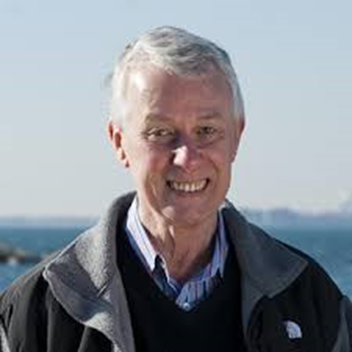
Richard Roberts
New England Biolabs, Ipswich, MA, USA
Sir Richard J. Roberts is the Chief Scientific Officer at New England Biolabs in Massachusetts, USA. He was educated in the UK, obtaining his PhD at the University of Sheffield in 1968. His postdoctoral research was carried out in J.L. Strominger’s laboratory at Harvard, USA, where he studied tRNAs. A stay as a guest in Cambridge, UK with Frederick Sanger directed him to the “technique” of RNA sequencing, and he succeeded in exactly determining the individual nucleotides within some tRNA molecules. From 1972 to 1992 Richard Roberts worked at Cold Spring Harbor Laboratory, reaching the position of Assistant Director for Research under J.D. Watson. At this time he began work on the newly discovered Type II restriction enzymes and his laboratory cloned the genes for several restriction enzymes and their cognate methylases. Richard Roberts was also involved in studies of adenovirus-2, beginning with studies of transcription that led to the discovery of split genes and mRNA splicing. It has since been established that the discontinuous gene structure he discovered is the most common gene structure found in higher organisms. In 1993 Richard Roberts became a Nobel Prize laureate in Medicine for his discoveries of split genes and mRNA splicing.
FEBS Theodor Bücher Lecture (Closing Plenary Lecture)
The Biology of CRISPR–Cas
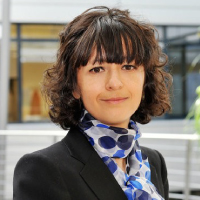
Emmanuelle Charpentier
Max Planck Unit for the Science of Pathogens and Humboldt University, Berlin, Germany
Prof. Emmannuelle Charpentier studied biochemistry at the University Pierre and Marie Curie (UPMC) in Paris, France. She was a postdoctoral fellow at the Institut Pasteur, France and at the Rockefeller University, USA, and a research scientist at New York University Medical Center, at the St. Jude Children's Research Hospital and at the Skirball Institue of Biomolecular Medicine, USA, at the Institute of Microbiology and Genetics at Vienna University, Austria, at Umeå University, Sweden and at the Helmholtz Centre for Infection Research in Braunschweig, Germany. She was Director at the Max Planck Institute for Infection Biology, Berlin (2015-2018), and is now Founding, Scientific and Managing Director at the Max Planck Unit for the Science of Pathogens, Berlin. She is also an Honorary Professor at Humboldt University in Berlin. Emannuelle Charpentier is best known for her role in deciphering the molecular mechanisms of the bacterial CRISPR/Cas9 immune system and repurposing it into a tool for genome editing. In particular she uncovered a novel mechanism for the maturation of a non-coding RNA which is pivotal in the function of CRISPR/Cas9. Her group showed that Cas9 could be used to make cuts in any DNA sequence desired. Researchers worldwide have employed this method successfully to edit the DNA sequences of plants, animals and cell lines. Emmanuelle Charpentier has received a number of outstanding awards and honours, and among others she is a member of 13 academies of science and Doctor Honoris Causa at five universities. With Jennifer A. Doudna, she has been awarded the Nobel Prize in Chemistry 2020 "for the development of a method for genome editing".
FEBS Sir Hans Krebs Lecture
RNA Silencing, Disease Resistance and the Inheritance of Acquired Characteristics

David Baulcombe
University of Cambridge, United Kingdom
Prof. Sir David Baulcombe received his BSc degree in botany from the University of Leeds in 1973 and his PhD from the University of Edinburgh, UK, and was then a postdoctoral fellow at McGill University and at the University of Georgia, USA. On returning to the UK, he joined the Plant Breeding Institute (PBI) in Cambridge and started his career as an independent scientist. In 1988 he joined the Sainsbury Laboratory, Norwich and was appointed as Professor at the University of East Anglia, and in 2007 he became the Professor of Botany at Cambridge University. He serves on several committees and study sections, was President of the Biochemical Society, and was elected a Member of the European Molecular Biology Organization (EMBO), Fellow of the Royal Society and Foreign Associate Member of the US National Academy of Sciences. He has received several distinctions and awards including the Wolf Prize for Agriculture and he shared the Lasker Award for Basic Biomedical Science. Sir David Baulcombe’s research has contributed to the fields of virus movement, genetic regulation, disease resistance, and gene silencing. With Andrew Hamilton he discovered the small interfering RNA that is the specificity determinant in RNA-mediated gene silencing. His group demonstrated that while viruses can induce gene silencing, some viruses encode proteins that suppress gene silencing. He also helped to unravel the importance of small interfering RNA in epigenetics and in defence against viruses.
EMBO Lecture
Autophagy as an Aging Decelerator
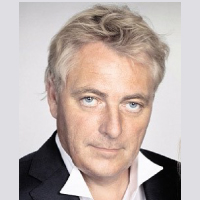
Guido Kroemer
Centre de Recherche des Cordeliers, Paris, France
Prof. Guido Kroemer is currently Professor at the Faculty of Medicine of the University of Paris Descartes, Director of the research team "Apoptosis, Cancer and Immunity" of the French Medical Research Council (INSERM), Director of the Metabolomics and Cell Biology platforms of the Gustave Roussy Comprehensive Cancer Center, and Hospital Practitioner at the Hôpital Européen George Pompidou, Paris, France. He is also a Foreign Adjunct Professor at the Karolinska Institute, Stockholm, Sweden, as well as an Honorary Professor at the Systems Medicine Institute of the Chinese Academy of Sciences in Souzhou. Guido Kroemer’s work focuses on the pathophysiological implications of cell stress and death in the context of aging, cancer and inflammation. With an h-index of 217, he is Europe’s most cited researcher in biomedical research. His contributions have been recognized with numerous awards including the most prestigious cancer research prizes from Belgium (Baillet-Latour Health Prize), France (Prix Léopold Griffuel) and Switzerland (Brupbacher Prize). Guido Kroemer is member of the European Molecular Biology Organization (EMBO), German Academy of Sciences (Leopoldina), Austrian Academy of Sciences, Academia Europaea, European Academy of Sciences (EAS), and European Academy of Sciences and Arts (EASA). He is also the Founding President of the European Academy of Tumor Immunology (EATI).
Plenary Lecture
Structural and Mechanistic Insights into Eukaryotic Protein Synthesis
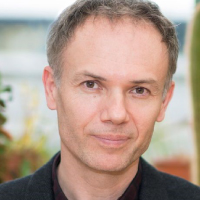
Nenad Ban
Institute for Molecular Biology and Biophysics, Zurich, Switzerland
Prof. Nenad Ban was educated at the University of Zagreb, Croatia and obtained a PhD degree at the University of California at Riverside, USA. His interest in large macromolecular assemblies led him for his postdoctoral work to the Department of Molecular Biophysics and Biochemistry at Yale University, USA. Since 2000 Nenad Ban is a professor of structural molecular biology at the ETH Zurich, Switzerland. Structural studies in his group on bacterial and eukaryotic ribosomes and their functional complexes, using a combination of crystallographic, electron microscopic and biochemical experiments, have provided fundamental insights into the process of protein synthesis in all kingdoms of life. His group has obtained detailed structural information on eukaryotic ribosomes, which are larger and more complex than their bacterial counterparts. They also obtained a breakthrough in visualizing mammalian mitochondrial ribosomes and on mechanisms of how mitochondrial ribosomes, specialized for the synthesis of membrane proteins, are attached to the membranes. The work of his group on giant multifunctional enzymes involved in fatty acid synthesis offers first mechanistic insights into substrate shuttling and delivery in such megasynthases, with direct implications for understanding of polyketide synthases. Nenad Ban is a member of the European Molecular Biology Organization (EMBO), the German Academy of Sciences and the Croatian Academy of Arts and Sciences, and is the recipient of several prizes and awards.
FEBS/EMBO Women in Science Award 2020 Lecture
Defining Intrinsic Determinants of Regeneration Ability and Inability

Elly Tanaka
Institute of Molecular Pathology, Vienna BioCenter, Austria
Elly Tanaka has been awarded the 2020 FEBS/EMBO Women in Science Award for her pioneering work developing a molecular understanding of limb and spinal cord regeneration. Elly Tanaka studied biochemistry at Harvard University before completing her PhD on the function of microtubules in morphogenesis at the University of California San Francisco, USA in 1993. During a postdoctoral fellowship at University College London, UK she began studying regeneration in the salamander, a subject she has continued to investigate in her subsequent appointments. She is now a Senior Scientist at the Institute of Molecular Pathology, Vienna BioCenter, Austria. Elly Tanaka’s current research interests are in further developing an understanding of regeneration and investigating the differences in regenerative abilities between species and at different phases of the life cycle. Most recently, she has used her knowledge of regeneration to engineer fully patterned three-dimensional tissue from stem cells, and is currently using these tissues to screen drugs that could potentially combat defects in pigmented retinal epithelium (RPE) cells that are known to cause progressive blindness. She has received many awards for her work, including the German Stem Cell Network Female Scientist Award (2017), the Ernst Schering Award (2017) and the Schrödinger Award of the Austrian Academy of Sciences (2018).
FEBS/EMBO Women in Science Award 2021 Lecture
Exploring the Interface between Living and Non-living Matter to Transform Health

Molly Stevens
Imperial College London, UK
Molly Stevens has been awarded the 2021 FEBS/EMBO Women in Science Award for her innovative bioengineering approach that addresses key problems in regenerative medicine and biosensing. Molly Stevens FREng FRS is Professor of Biomedical Materials and Regenerative Medicine and the Research Director for Biomedical Material Sciences in the Department of Materials, in the Department of Bioengineering and the Institute of Biomedical Engineering at Imperial College London, UK. She also runs a satellite laboratory at the Karolinska Institutet in Stockholm, Sweden. Her multidisciplinary research balances the investigation of fundamental science with the development of technology to address some of the major healthcare challenges. Her work has been instrumental in elucidating the biomaterial interfaces. She has created a broad portfolio of designer biomaterials for applications in disease diagnostics and regenerative medicine. Her substantial body of work influences research groups around the world (>350 publications, h-index 86, >30k citations, 2018 Clarivate Analytics Highly Cited Researcher in Cross-Field research). Molly Stevens holds numerous leadership positions including Director of the UK Regenerative Medicine Platform "Smart Acellular Materials" Hub, Deputy Director of the EPSRC IRC in Early-Warning Sensing Systems for Infectious Diseases and President of the Royal Society of Chemistry Division of Materials Chemistry. She has received more than 30 awards and honours, including the Karen Burt Memorial Award of the Women’s Engineering Society, UK, and the Rosalind Franklin Medal and Prize of the Institute of Physics, UK. She is a Fellow of eight learned societies in the UK, including the Royal Society, and has been elected a Foreign Member of the National Academy of Engineering, USA.
IUBMB Lecture
Seeking Non-coding RNA Regulators of Acetylcholine Functioning

Hermona Soreq
The Hebrew University of Jerusalem, Israel
Prof. Hermona Soreq was trained at The Hebrew University, Tel Aviv University and Weizmann Institute, Israel and the Rockefeller University, USA. She joined The Hebrew University in 1986, holds a Slesinger Chair in Molecular Neuroscience and is a founding member of the Edmond and Lily Safra Center for Brain Science. The research work of Hermona Soreq pioneered molecular biology and genomics approaches to neurotransmitter acetylcholine signaling, with focus on its non-coding RNA and microRNA regulation – spanning both basic and biomedical studies in health and disease. She demonstrated that acetylcholine signalling can be manipulated by oligonucleotide-mediated therapeutics, which can be relevant for anxiety-related, neuromuscular and neurodegenerative (Parkinson's and Alzheimer's) diseases. Hermona Soreq served as a first elected female Dean of the Hebrew University's Faculty of Science. She is elected President of the International Organization of Cholinergic Mechanisms, and a member of The Hebrew University’s Executive Committee and scientific advisory boards for national and international bodies, including the Immunosensation Center, Bonn, Germany and the International Advisory Boards of the UK–Israel Council and Ben-Gurion University’s National Center of Biotechnology.
FEBS Education Plenary Lecture
Why Science Education is More Important Than Most Scientists Think
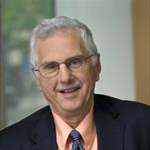
Bruce Alberts
University of California, San Francisco, USA
Prof. Bruce Alberts received his PhD at Harvard University, USA, then continued as a postdoctoral fellow at the Institute of Molecular Biology, Geneva, Switzerland and as associate professor at Princeton University, USA. In 1976 he became a professor at the University of California, San Francisco, USA, where he is now the Chancellor’s Leadership Chair in Biochemistry and Biophysics for Science and Education. His research work included study of the protein complexes that enable chromosome replication. Bruce Alberts served as Editor-in-Chief of Science and for two six-year terms as the president of the National Academy of Sciences. He was awarded the National Medal of Science by President Barack Obama in 2014 and the 2016 Lasker-Koshland Special Achievement Award in Medical Science. He is known as one of the original authors of a pre-eminent textbook in the field: Molecular Biology of the Cell. During his tenure at the National Academy of Sciences, Bruce Alberts was instrumental in developing the landmark National Science Education Standards that have been implemented in school systems nationwide. Committed in his international work to the promotion of the “creativity, openness and tolerance that are inherent to science,” Bruce Alberts believes that “scientists all around the world must now band together to help create more rational, scientifically-based societies that find dogmatism intolerable”.
FEBS Datta Lecture
Designing Nature, from Protein Origami to Cellular Circuits
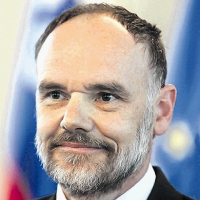
Roman Jerala
National Institute of Chemistry, Ljubljana, Slovenia
Prof. Roman Jerala is head of the Department of Synthetic Biology and Immunology at the National Institute of Chemistry in Ljubljana, Slovenia. He received his PhD at the University of Ljubljana and was a postdoctoral fellow at the University of Virginia, USA. His group contributed to the understanding of the molecular mechanisms of signaling of several Toll-like receptors in infection and cancer. He has been active in synthetic biology since 2006, where he notably pioneered the design of coiled-coil protein origami as a new principle of designing protein folds, and his group designed several strategies of information processing in cells, such as layered NOR genetic gates, polarized displacement of DNA-binding proteins and split protease orthogonal coiled-coil-based signaling pathways. Roman Jerala was elected a member of the European Molecular Biology Organization (EMBO) and Academia Europaea and is a recipient of an ERC Advanced Grant. In the synthetic biology community he is also known as a mentor of numerous successful iGEM student research projects.
FEBS Letters Award Lecture
Selective Brain Region Vulnerability in Parkinson’s Disease is governed by α-Synuclein Conformations
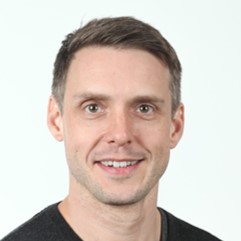
Tim Bartels
UK Dementia Research Institute at UCL, London, UK
Dr Tim Bartels comes from a background in Biophysics and conducted his PhD at the DZNE at the Ludwig-Maximilian University in Munich, Germany. Following his post-doctoral training with Dennis Selkoe at Brigham & Women’s Hospital and Harvard Medical School, USA, he accepted his first faculty position as Instructor and later Assistant Professor of Neurology. Now leading a new programme at the UK Dementia Research Institute at University College London, Tim and his group will continue research investigating the structure–function relationship of alpha-synuclein in synucleinopathies. Tim Bartels is the recipient of the FEBS Letters Award 2020, which recognizes an outstanding paper published in FEBS Letters during the previous two calendar years. For more details, see the FEBS website announcement on the prize here.
FEBS Journal Prize Lecture
A Redox-sensitive Mobile Protein HIC-5: a Guardian of Anchorage-dependent Cell Growth and a Fortress against Tumor Metastasis
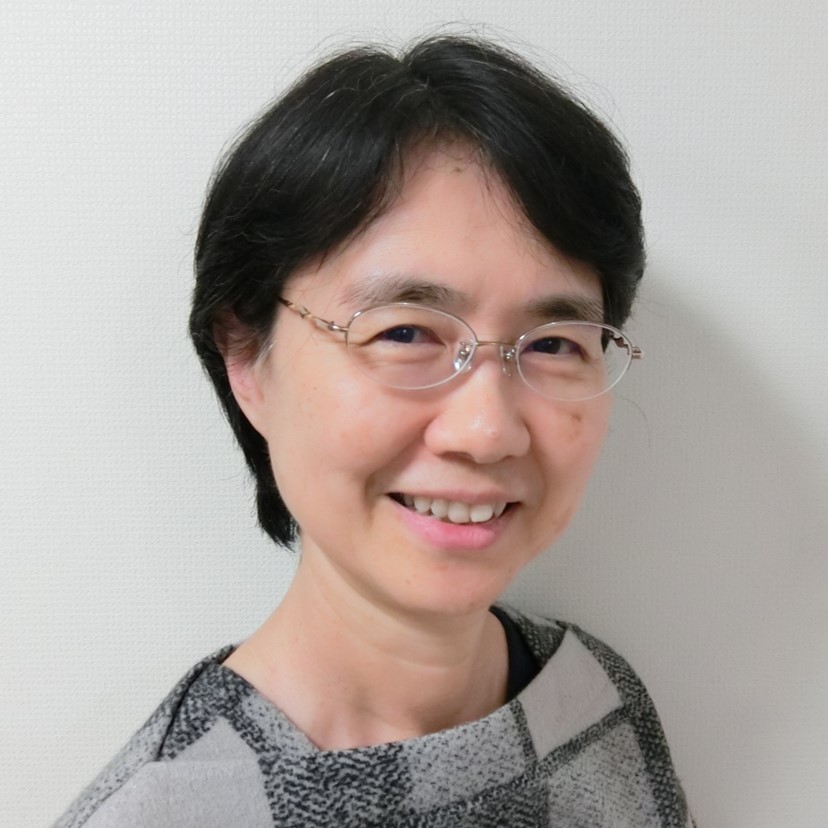
Motoko Shibanuma
Showa University School of Pharmacy, Tokyo, Japan
Prof. Motoko Shibanuma obtained her PhD in Pharmaceutical Sciences from the University of Tokyo, Japan in 1990, and became a professor at the Showa University School of Pharmacy, Tokyo in 2009. A research paper from her lab showing new insights into the regulation of the tissue‐remodeling enzyme matrix metalloproteinase 9 has been selected as the winner of The FEBS Journal Richard Perham Prize 2020, which recognizes an outstanding article published in the journal in the previous year. For more details, see the FEBS website announcement on the prize here.
PABMB Lecture
The Oxygen Paradox in Human Biology and Medicine: Bioenergetics, Free Radicals and Oxidative Stress
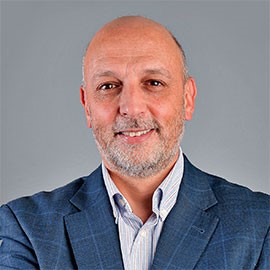
Rafael Radi
Universidad de la República, Montevideo, Uruguay
Prof. Rafael Radi studied at Universidad de la República in Montevideo, Uruguay, gaining a PhD in biochemistry in 1991. He performed postdoctoral studies at the University of Alabama in Birmingham, USA. Upon his return to Uruguay he joined the Department of Biochemistry at the Universidad de la República, Montevideo, becoming Professor and Chairman in 2006. In 2004 he founded the Center of Biomedical Investigations, and is its Director. He has adjunct appointments at the University of Buenos Aires, Argentina, and at the University of Alabama, University of Pittsburgh and Vanderbilt University, USA. He is also an associate member of the US National Academy of Sciences. Rafael Radi´s research focuses on the production, chemical biology, cell signaling and pathological effects of oxidants and free radicals. He has made seminal observations regarding the mechanisms of the pathogenic actions of nitric oxide. Since then, Radi´s findings related to the chemical biology, physical biochemistry, mitochondriology, cell biology and pharmacology of nitric oxide and peroxynitrite have revealed fundamental insight into their actions in cell metabolic dysfunction, apoptotic signaling, lipid oxidation/nitration and post-translational protein modification – events important in disease processes where inflammation plays a critical role, including atherogenesis, hypertension and neurodegeneration.



